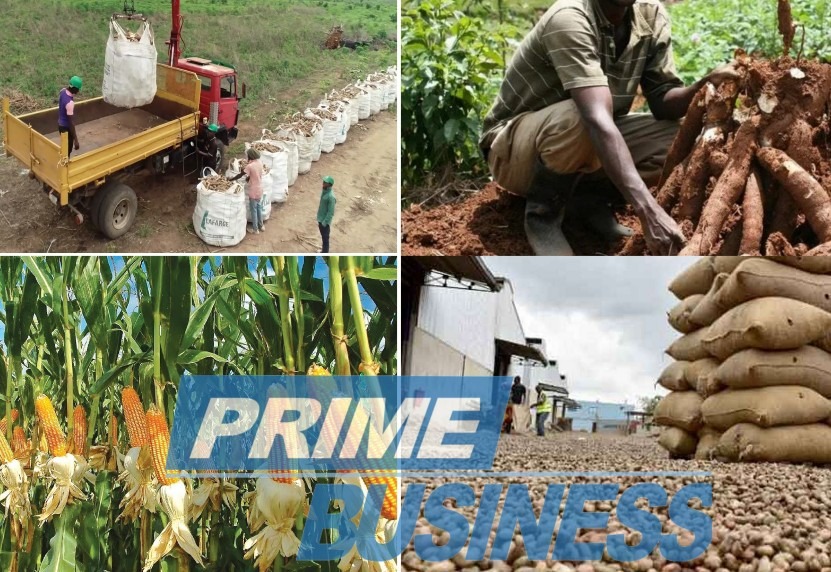Africa, the world’s second-largest and most-populous continent, traverses 20 per cent of Earth’s total surface area with big chunk of arable land. No surprise that the continent is often referred to as “World’s Breadbasket.” Despite the title, the continent remains the most hunger-ravaged. According to the 2022 Global Hunger Index, 37 of Africa’s 54 countries have levels of hunger rated “Serious,” a situation that undermines the capacity to farm for exports. Of course, the continent will first have to grapple with developing its capacity to feed the growing population. Agriculture makes up 35 per cent of Africa’s Gross Domestic Product (GDP) and employs about half of its people; yet, the continent continues to import billions of dollars worth of agric products every year.
Make no mistakes about it, Africa has what it takes to become a major player in the global agricultural market. Blessed with fertile soils and climatic conditions that favour cultivation of crop varieties, smallholder farmers, who constitute 80 percent of the continent’s agricultural workforce, still rely on obsolete technology, and lack finance, storage facilities and market networks. These factors coupled with insufficient infrastructure and post-harvest losses only lead to the conventional model of exporting raw, unprocessed agricultural products causing price volatility, dependency on global market shocks, and limited value retention within the continent. Whereas, processed and packaged goods allow for diversification of exports that feeds a more stable market demand and can fetch better prices in international markets.
Join our WhatsApp ChannelWith the Special Agro-Industrial Processing Zones (SAPZs) initiative, agro-processing can drive new investment from abroad, from within the continent and outside of Africa. The African Development Bank (AfDB) has so far contributed $1.5 billion to advance exports for value-added agric products through SAPZ and to fight the menace of hunger. Last week, the alliance debuted in Marrakesh, Morocco where the AfDB President, Dr Akinwumi Adesina, profoundly said: “We must recognize that the fastest way to poverty is via the export of raw commodities, while the highway to wealth is from the export of value-added products.” SAPZs was earlier inaugurated in Nigeria in October 2022 to boost household incomes, facilitate job creation in rural agricultural communities—especially for youth and women—and strengthen food and nutrition.
It was launched to develop value chains for selected strategic crops in Nigeria, including maize, cassava, rice, soybean, cocoa, poultry, and livestock products. Adesina explained at the time that “the Special Agro-industrial Processing Zones are new economic zones, located in rural areas, to be fully supported by infrastructure (power, water, roads, digital infrastructure, and logistics) that will allow food and agribusiness companies locate within such zones. This will put them close to farmers in production catchment areas, provide market offtakes for farmers, support processing and value addition, reduce food losses, and allow the emergence of highly competitive food and agricultural value chains.”
SAPZs presents a promising solution to address the existing challenges and unlock Africa’s agricultural potential by collocating farmers, agribusinesses, and industrial enterprises within a geographically defined area. This fosters collaboration and synergy that in turn ensures that the entire agricultural value chain is considered; from production and processing to marketing and export. It serves as a hub for technology transfer and innovation by introducing modern farming techniques, precision agriculture, and efficient processing methods. These significantly enhance productivity and quality of agricultural products, aside from the spinoff of job opportunities throughout the value chain; from farm labor to processing plant workers, logistics professionals to marketing and sales staff.
Countries of the world that are today’s agricultural powerhouses attained the enviable status through initiatives like SAPZ. China, for instance, metamorphosed from an agrarian economy to an industrial hub by setting up Special Economic Zones (SEZs) which facilitated integration of agriculture, industry, and trade, leading to the country’s rapid economic development. Through Agro-Processing Clusters, India concentrated agricultural and processing activities in enabling regions, leading to increased efficiency in the supply chain and a boost in the export of processed agricultural products. What these countries essentially did was add value to their agricultural production by way of processing and introducing a new value chain.
Some African countries have models that reflect what SAPZs is hoping to accomplish. Ghana, which is one of the world’s leading cocoa producers, has invested in processing its cocoa locally. The West African country has by this gone beyond exporting raw cocoa beans to also a range of processed cocoa products, including chocolate and cocoa butter. This approach has increased the value derived from cocoa exports while creating local employment opportunities. Kenya is another shining light as the East African country has successfully ventured into value addition in the horticultural sector, processing and exporting products such as canned fruits, dried vegetables, and fruit juices. This not only enhances the value of horticultural exports but also extends the shelf life of perishable products, thereby reducing post-harvest losses.
Other countries are increasingly focusing on agro-processing in response to the food insecurity and price spikes caused by trade disruptions from global shocks — not least the Russian invasion of Ukraine — and because of the potential to transition economies away from the long-established but suboptimal model of exportation of raw materials. SAPZs can therefore be the elixir for the transformation of the agricultural sector, raise productivity, scale economies and efficiencies of food and agricultural value chains. Prime Business Africa recommends that it be tied to the Africa Continental Free Trade Area (AfCFTA). Under the AfCFTA agreement, Africa’s need for import will be drastically reduced with the capacity for domestic processing boosted massively. It is projected that intra-African agricultural trade will increase by 574 per cent by 2030. For this ro happen, we call on African countries to eliminate import tariffs.
Given that the global marketplace is increasingly driven by consumer demand for processed and packaged products, African countries should take advantage of SAPZs to improve the terms of trade and enhance their economic standing on the global stage. The successful implementation of SAPZs, which seeks to make Africa’s agricultural landscape more competitive, sustainable, and inclusive, requires a collaborative effort from governments, private sector stakeholders, and local communities. This is because the income generated from traditional farming practices cannot be enough to lift communities out of poverty. Governments must implement supportive policies that encourage value addition in agriculture by providing incentives, such as tax breaks and subsidies, to agro-processing industries.
READ ALSO: Biden, AGOA And What’s Fair Deal For Africa
Additionally, governments in Africa should fund research and development in agricultural technology and innovation that would make the processed produce meet global best standards. There is also the need for capacity building at various levels that would see to the training of farmers in modern agricultural practices, providing technical skills to workers in processing industries, and fostering entrepreneurship to drive innovation in the sector. Prime Business Africa believes that small and medium-sized enterprises (SMEs) in Africa have so much to gain by investing in value addition to agricultural produce. Financial institutions and governments must however design policies and mechanisms that would facilitate affordable and accessible financing for agro-processing ventures. The foregoing is so that Africa can veer from the path of poverty to the highway of wealth creation.















![Gender Activism An Economic Necessity In Africa [PBA Editorial]](https://www.primebusiness.africa/wp-content/uploads/2023/11/vaw-720x480.png)

Follow Us